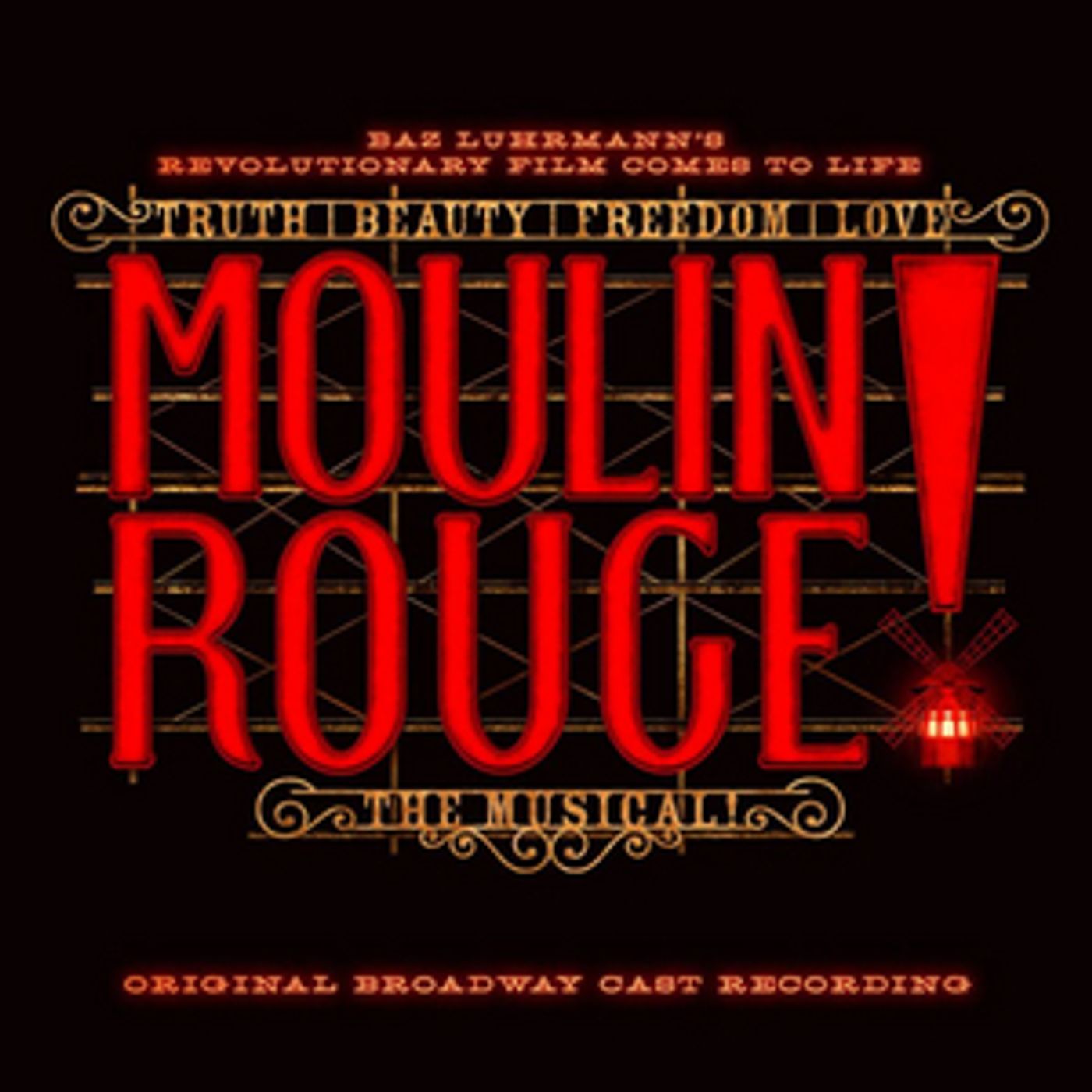BWW Album Review: MOULIN ROUGE's Cast Recording Doesn't Quite Listen to Its Heart

Here's the thing about the Moulin Rouge! cast recording: it's very, very "spectacular spectacular," as the song goes. The album revamps the 2001 film's famously pop-laden score to incorporate even more greatest hits of the last two decades, and every single track is packed to the brim with excess that Harold Zigler would be proud of. The downside to this approach, unfortunately, is that the story's sweet, sad, beating heart is nearly buried under all the glitz.
Out of the touchstones from the movie, "Lady Marmalade" remains, launching the proceedings with all the verve and sexy energy you would expect. Quickly, we're introduced to Karen Olivo's version of Satine with "The Sparkling Diamond," an updated version of the film's "Diamonds" medley. Rather than imitating Nicole Kidman's ethereal, consumptive heroine, Olivo is a bolder, brasher diva with a gorgeous, envious belt.
She's a fine match for Aaron Tveit's Christian, who evokes the boyishness of Ewan McGregor with a much, much better singing voice. He's first introduced in a few group numbers, but when we get to the all-important "Your Song," it's clear the role is in the best of hands: his rendition is both gently intimate and swooningly epic. And when the pair duet on the gorgeous "Elephant Love Medley," now filled out with a mind-boggling array of new song samples, you genuinely believe every word they sing to each other, just as you believe their truly lovely version of the show's signature song, "Come What May." In fact, swapping that duet with "Your Song" as the story's "magic song" was a major misstep: there's something magical about it that no pre-existing song can replicate.
The score's biggest mistake is that, in its attempt to cram more and more pop song snippets in, it loses sight of why that language was chosen by Baz Luhrmann and co. originally. The very idea was that these exaggerated, quasi-operatic characters were made relatable and human to us through the vernacular of pop, which translated their centuries-ago longings, larger-than-life emotions, and the dark glamour of the Parisian underworld into something we could understand and have a corresponding experience with. Here, the focus is more on "oh, I know that song!"
Sure, it's certain to send a murmur of recognition through the audience when Olivo bitterly sings Katy Perry's "Firework," but that Top-40 kind of "uplift" is a mismatch for a character of depth and dimension. Without her "One Day I'll Fly Away" moment, Satine's emotions and motivations are muddled and hard to connect to, which irrevocably damages our investment in her romance with Christian and her ultimate fate.
Danny Burstein, as impresario Zigler, has a scenery-chewing role that he gives his all to, and his "Chandelier" is unexpected but a clever twist on the movie's "green fairy" song. Tam Mutu fares less well as the villainous Duke. Although his character gets not one, but two numbers that make him a darkly sexy presence rather than the movie's prissy buffoon, it ultimately slows and muddles the score, despite Mutu's excellent voice.
Not all of the new moments are poorly chosen, though. The Act 2 opener, "Backstage Romance," which uses Lady Gaga's "Bad Romance" as its central motif, is rough, messy, giddy, and intense in all the ways we'd hope Moulin Rouge! could be. It serves as a counterpart or foreshadowing of sorts to the later "El Tango de Roxanne." That song is a real star moment for Tveit, whose anguish is palpable even as he soars to gorgeous high notes. Earlier in the show, "Shut Up and Dance" makes for an energetic and organic addition to the scene where Christian first encounters Satine, and the "Children of the Revolution" medley, with Sahr Ngaujah at the helm, incorporates two modern songs surprisingly well.
The tragedy of the final songs feels devastating, but not for the reasons you'd hope. It's not devastating because you've come to feel these characters in your heart through their music - it's devastating because you know you should feel something, but the show just didn't quite get you there. It's not helped by the choice of a loud, raucous encore medley, only seconds after the tragic finale. Ultimately, the Broadway score of Moulin Rouge! seems to have forgotten that the spectacle isn't why it's so beloved - it's the unexpected ways that the modern collided with the old-fashioned to bring us intense emotions.
Reader Reviews
Videos

